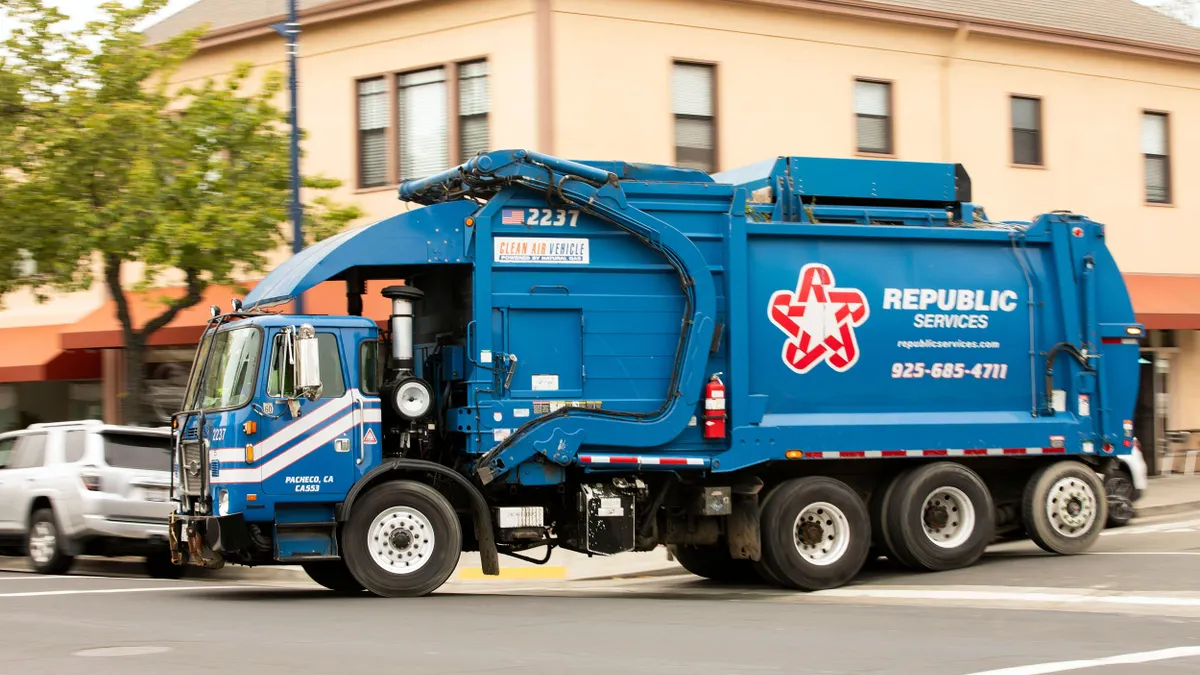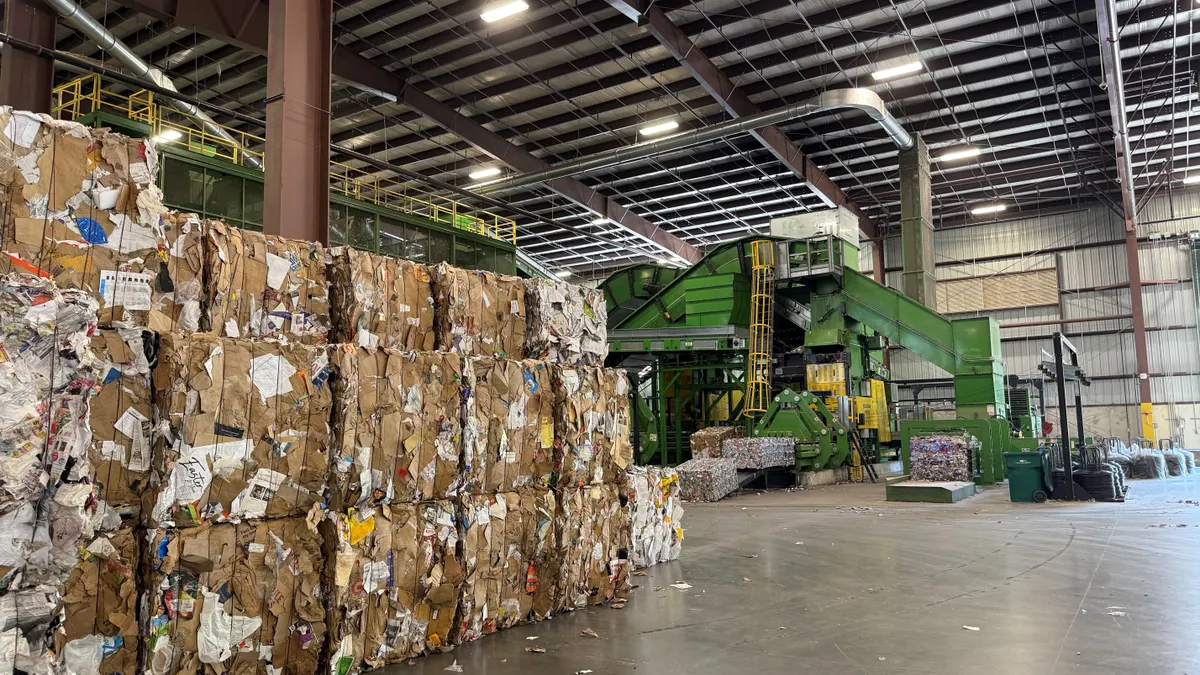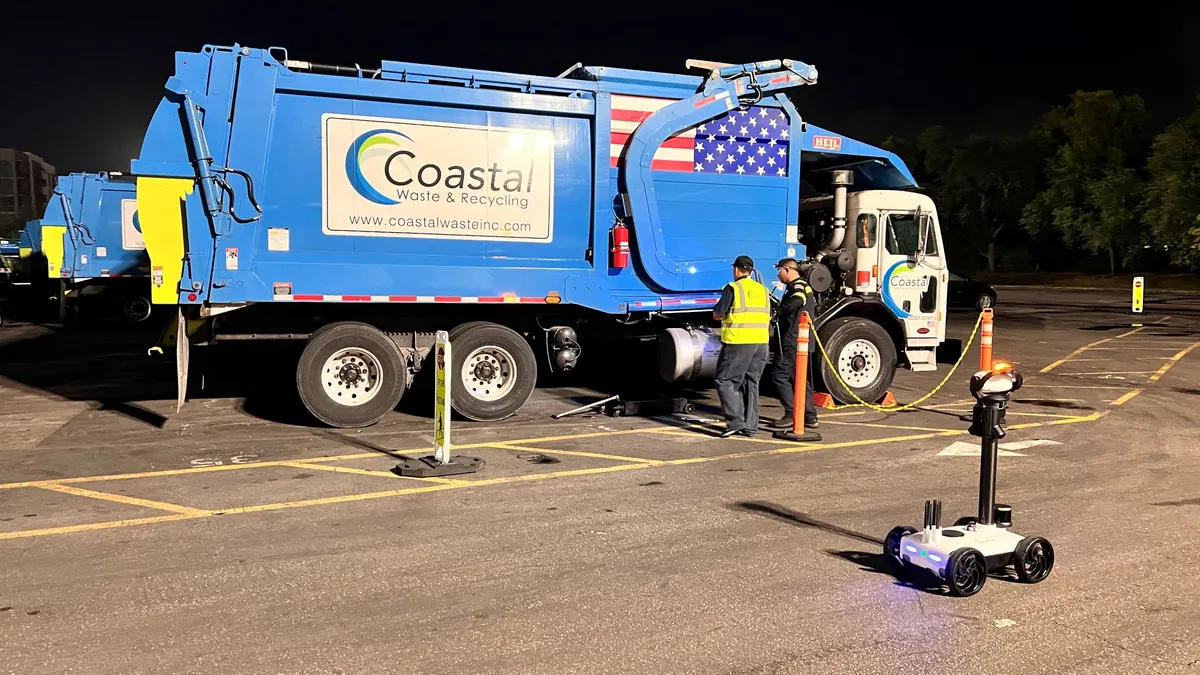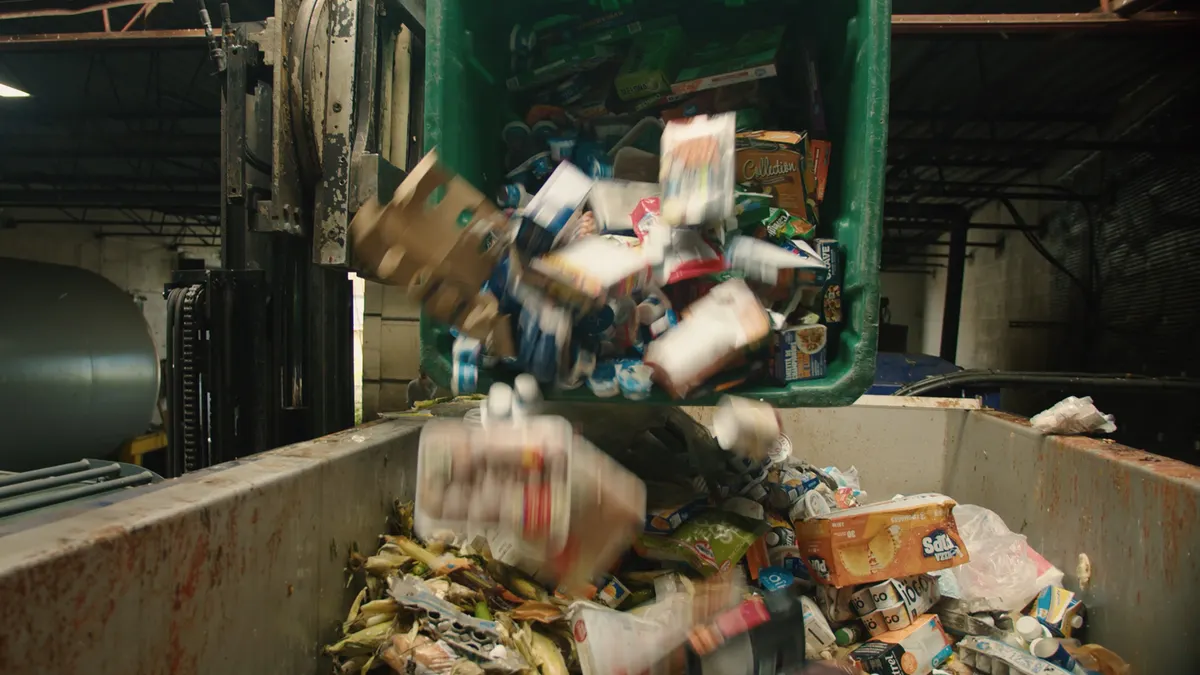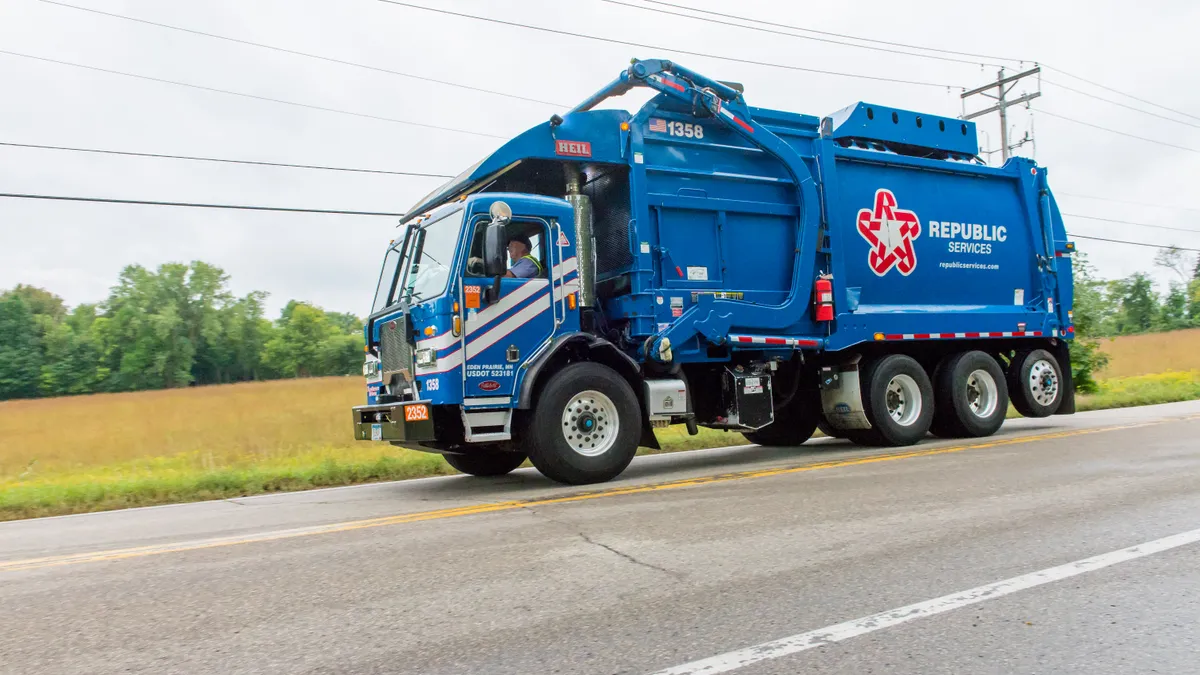Seattle trash haulers considered it business as usual when they were told to monitor the trash on their routes for food scraps.
However, concerns about privacy rights have created a strong debate in the city as residents dub the ordinance as "trash-snooping."
"It's an invasion of privacy," plaintiff Sally Oljar told NBC's KING5 TV in Seattle.
"We don’t want to get in anyone’s business," counters Tim Croll, Solid Waste Planning and Program Manager for Seattle Public Utilities. “We want the garbage system to work well.”
The Seattle ordinance went into effect in January, directing residents to put food scraps in the composting with yard waste — not in the trash. Haulers were told to visually inspect trash in transparent containers (or the loose or spilled trash), but not to open garbage bags. If more than 10% of the contents appeared to be food waste or recyclable, a tag was left informing the resident of the violation.
The city had planned to issue warnings through June, then start fining offenders — $1 for residences, $50 for businesses and multifamily units — through their utility bills. The program worked so well, however, that Mayor Ed Murray said in April he would suspend the fines, according to the Seattle Times. Croll notes that "how often we’re seeing something in the garbage that shouldn’t be there" is less than 1%. "Any lack of compliance we’re seeing is the exception and not the rule."
But in July, the Pacific Legal Foundation sued the city in King County Superior Court, arguing, "A person has a legitimate expectation that the contents of his or her garbage cans will remain private and free from government inspection."
The complaint argues that there’s no definitive way to determine what 10% of a trash container is, that methods of carrying out the requirements varies by collector, and that the ordinance violates residents’ rights to due process because there’s no clear way for a resident to appeal.
Croll said that residents who have any problems with their service can check their bills. "There’s a phone number. You call and we take care of it," he said.
As for the 10% rule, "There’s some judgment involved," Croll said. "We’re doing it the same way we’ve done it since 2005 on the recycling side, and we haven’t really had any complaints about that."
And, most importantly, statement from the city attorney's office to the TV station said the practice "fully complies with the law."
Where else is 'trash-snooping' a hot topic?
The City of San Jose, CA is considering $50 fines for people who regularly throw trash in the recycling bin. City spokesman David Vossbrink said a recent city audit found that 40% of the items found in recycling bins are not recyclables, but trash. "Our citywide goal is to achieve 100% recycling," Vossbrink said. The city, which did not describe how it would determine who is fined, is studying what kinds of trash end up in the recycling to see how education efforts can help.
Additionally, Vermont made recycling mandatory as of July 1. Waste districts and towns are required to have a plan that complies with the law and shows they can meet requirements. Haulers are required to offer recycling, to bundle the price for trash and recycling, and to notify customers of their obligation to separate the trash.
Even areas of Canada are a part of the trash-snooping debate. On Aug. 1, the Halifax Regional Municipality in Nova Scotia switched to clear trash bags to assure that residents are complying with recycling and composting rules. Trash haulers place rejection stickers on any bags that contain recyclable or compostable material, and those bags are left at the curb. Alan Abraham, general manager of waste hauler Royal Environmental Inc., told Metro News that compliance in the first 10 days was around 80%. He noted, however, that many people were using a single black bag, which is allowed for private trash. He attributed that to people recycling more, and thus making less trash, or using up their supply of black bags. He also noted that few bags were being left at the curb for noncompliance. "If a lot of people weren’t compliant it would slow us down considerably," he said.
Are these mandates fulfilling their purpose?
By placing these mandates, officials have good intentions of keeping compostable and recyclable materials out of landfills. However, not everybody agrees with the approach.
Roughly 72% of the municipal waste stream in the U.S. is organic waste, with more than 36 million tons being disposed of each year in the United States. Food waste diversion can keep methane-producing, usable material out of landfills while saving landfill space for other waste. The waste can instead be recycled and used for biofuel for waste-to-energy plants, as well as for creating compost and fertilizer.
Croll estimated that with the new Seattle ordinance, 11,000 more tons of food waste and compostable paper will be going to composting in a year.
A statement from Seattle Public Utilities to KING5 says, "The composting requirement is a necessary step in meeting the city's goal of 60% recycling." Croll estimates that with food composting, the city is at 58.6%. However some say this goal does not justify the act of snooping.
A court in Washington state will decide the Seattle case, but in general, courts have ruled that trash left at the curb is fair game. In 1988, the U.S. Supreme Court ruled in California v. Greenwood that an individual had no reasonable expectation of privacy for trash left on public streets.
Some localities have specific laws regarding the practice of sifting through trash. In New York City, for example, it’s legal to take items left at the curb, but only if you’re on foot. The law is to deter organized groups in vehicles from profiting from trash picking.
And some in Washington argue that residents have even more protection based on the state Constitution.
Even if it's legal, the practice makes some people uncomfortable, with some haulers complaining about becoming recycling cops.
Lee Tourville of Tourville Trucking in Jericho, VT told the Burlington Free Press that he avoids confrontations with customers by sorting bins before he loads the contents on his truck. "My customers don’t want to hear a lecture on how they sorted their garbage wrong; they just want the trash to be gone when they get back from work," he said.
Education may be key
Recycling and waste sorting is confusing for many people. In a 2014 online poll by the Institute of Scrap Recycling Industries and Earth911, 65% of respondents said they don’t understand what plastics are acceptable in curbside collection.
And confusion leads to contaminated recycling.
Susan Robinson, director of public affairs at Waste Management, told USA TODAY the recycling that the industry giant processes is 16% contaminated, double the average of the 8% contamination rate 10 years ago. The Environmental Research & Education Foundation has found that contamination rates on average rose from 7% in 2007 in 437 facilities to 16% in 2013 in the 97 facilities so far counted.
San Jose and Vermont both emphasized that their goal in inspecting the trash is educating residents about the rules. And San Jose, which hasn't specified how it will monitor bins, makes clear that the fines are aimed at those who are regularly flouting the rules, rather than just confused.
"If we do have chronically difficult customers who are not responding to all the other efforts we have here then we'll look at enforcement tools here," Vossbrink told NBC Bay Area.
Croll in Seattle points out that there have always been rules for trash and recycling pickups. Rocks and tires, for example, can’t be left out for pickup.
"This is just the way the garbage industry works," he said. "If we pop the lid and see something that doesn’t belong, we leave it."








